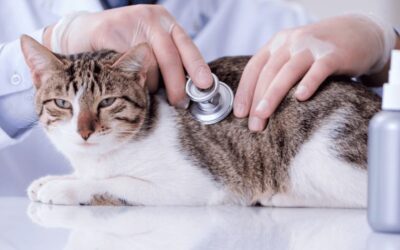Are Lilies Poisonous to Cats: What Cat Owners Should Know

When it comes to household plants, many pet owners often wonder about the safety of their greenery. One common question that arises is whether lilies are poisonous to cats. The answer is a resounding yes; certain types of lilies pose a significant risk to our feline friends. The toxicity of lilies is not only alarming but can also lead to severe health issues if ingested.
Lilies contain compounds that can cause acute kidney failure in cats, making it imperative for pet owners to be aware of the toxic types of lilies. The danger lies not just in the ingestion of the plant itself but also in the pollen and water from the vase, which can lead to accidental poisoning. Therefore, understanding the full scope of this issue is essential for any cat owner.
Which Types of Lilies Are Toxic to Cats?
Not all lilies are created equal when it comes to their effects on feline health. Some varieties are particularly harmful, while others pose little to no threat. Here’s a list of the most toxic lilies to cats:
- Easter Lily (Lilium longiflorum): Commonly found in homes during the spring, this lily is exceptionally toxic. Even a small amount can cause severe kidney damage.
- Tiger Lily (Lilium lancifolium): Often seen in gardens, tiger lilies are known to be particularly dangerous, as cats can suffer from rapid kidney failure within days of ingestion.
- Day Lily (Hemerocallis spp.): Though often considered less toxic than others, daylilies can still cause significant health issues for cats.
- Asiatic Lily (Lilium asiatica): These vibrant flowers are popular in bouquets, but they are equally harmful to cats.
How Are Cats Exposed to Lily Toxins?
Cats can come into contact with lily toxins in various ways, leading to accidental poisoning. Awareness of these exposure methods is crucial for prevention. Here are some common scenarios:
- Ingestion: This is the most obvious route. Cats may chew on lily leaves, flowers, or even the stem, leading to poisoning.
- Pollen Transfer: The pollen from lilies can easily fall onto the fur of a cat. When grooming, the cat might ingest this pollen, resulting in toxin absorption.
- Vase Water: The water that lilies are placed in can also contain toxins. If a cat drinks from this water, it may lead to poisoning.
Recognizing the Signs of Lily Poisoning in Cats
Being able to identify the signs of lily poisoning is vital for any cat owner. Early detection can make a significant difference in treatment outcomes. Here are some common symptoms to watch out for:
- Vomiting: One of the first signs of poisoning.
- Loss of Appetite: A sudden disinterest in food due to nausea caused by toxins.
- Lethargy: A poisoned cat may appear unusually tired or weak.
- Diarrhea: Gastrointestinal distress leading to dehydration.
- Increased Thirst: Cats may drink more water than usual due to kidney distress.
- Urinating Less: A significant drop in urination can indicate kidney failure.
The Severity of Lily Poisoning: Why It’s a Medical Emergency
Lily poisoning is not something to be taken lightly; it is a medical emergency. The severity of the situation arises from the potential for acute kidney failure, which can develop rapidly, often within 24 to 72 hours after ingestion. Without prompt veterinary care, the outcome can be fatal.
Diagnosis and Treatment of Lily Poisoning in Cats
Immediate veterinary intervention is crucial when a cat is suspected of lily poisoning. The veterinarian will conduct a thorough examination and may employ several diagnostic methods, including:
- Blood Tests: Assess kidney function and determine the extent of damage incurred.
- Urinalysis: Reveal abnormalities in urine composition, indicating kidney issues.
- Physical Examination: Check for signs of distress, dehydration, and other related symptoms.
Common treatment protocols include:
- Inducing Vomiting: If ingestion occurred within a short timeframe.
- Intravenous Fluids: Stabilize the cat and support kidney function.
- Monitoring: Continuous monitoring is essential for recovery progress.
Barri J. Morrison, DVM, further explained in the PetMD article: ‘Baseline lab work, including a complete blood count (CBC), serum chemistry profile, and urinalysis are all important to evaluate your cat’s organ status, most importantly the kidneys. An abdominal ultrasound might also be recommended to see if there is any kidney damage.
IV fluids are the most important treatment, as they help prevent the kidneys from failing further and also prevent dehydration. These fluids should be given for a minimum of 48-72 hours while monitoring the amount of urine they are producing, which might require your cat to have a urinary catheter in place.
Supportive care and other treatments, such as anti-nausea medications, might be needed as well. While hospitalized, youryou cat will also have regular blood draws to continue to monitor the kidney enzymes. If your cat is not producing enough urine, that is a sign that the kidneys are shutting down, and treatment might not be successful.’
Preventing Lily Poisoning: Keeping Your Cat Safe
Prevention is the best strategy to protect cats from lily poisoning. Here are some practical measures that cat owners can implement:
- Avoid Bringing Lilies Home: The simplest way to prevent poisoning is to refrain from purchasing or displaying lilies in the home.
- Educate Family Members: Ensure that everyone in the household understands the dangers of lilies.
- Create a Safe Space: Designate specific areas in the house where plants can be kept, ensuring they are inaccessible to pets.
Alternative Pet-Friendly Plants for Cat Owners
If cat owners are looking to brighten up their homes with greenery but want to avoid the risks associated with lilies, numerous pet-friendly plants are available:
- Spider Plant (Chlorophytum comosum)
- Boston Fern (Nephrolepis exaltata)
- Bamboo Palm (Chamaedorea seifrizii)
- Areca Palm (Dypsis lutescens)
Can Cats Survive Lily Poisoning?
Barri J. Morrison, DVM, also said: ‘Unfortunately, even with aggressive treatment, there is no guarantee that your cat will survive a lily ingestion toxicity. Early veterinary treatment significantly improves your cat’s prognosis.
If treatment is delayed by 18 hours or more after ingestion, your cat will likely have irreversible kidney failure. In the later stages of kidney toxicity, approximately 24 hours after ingestion, if your cat stops urinating, this carries a very poor prognosis of survival.
If treatment was initiated before urine production decreases, your cat has a good chance or survival. If your cat survives a lily ingestion, they will need to have regular checkups and bloodwork after they are hospitalized to ensure that the kidneys are recovering.
Because lilies are so dangerous for cats and there’s a high risk of death if they’re ingested, it’s best to not bring these plants into your home if you have a cat. It’s also best if you don’t plant them in your garden if your cat goes outside or if your neighbors have outdoor cats.’
How Can Pet Insurance Help You if Your Dog Needs a Treatment?
Pet insurance can be a valuable tool in managing the costs of treating a dog’s veterinary expenses. By having a pet insurance policy in place, you can have peace of mind knowing that you can provide medical care for your furry companion without worrying about the financial burden. Pet insurance can help cover the costs of veterinary consultations, diagnostic tests, medications, and even specialized treatments if required.
Reimbursement
This method is the most common for pet insurance companies. You pay out of pocket for the veterinarian bill, and then the insurance company reimburses you for what’s covered under the insurance plan. The steps look like this.
- You pay the vet bill after your cat’s visit.
- You fill out the pet insurance claim form.
- Submit the claim form and other required documentation to the insurer.
- After the claim is approved, you will be reimbursed for eligible expenses.
Odie’s Illness and Injury pet health insurance plan offers comprehensive coverage for your cat.
What Does Odie Pet Insurance Cover?
Pet insurance covers various veterinary expenses, providing financial protection and peace of mind for pet owners. Here are the details of the coverage options offered by Odie Pet Insurance:
Illness & Injury Plan
The Illness & Injury Plan is an all-inclusive insurance plan designed to cover a wide range of medical needs for your pet. This plan includes comprehensive coverage for various illnesses, injuries, and veterinary services. Some of the covered items include:
- Veterinary exams and consultations
- Diagnostics (e.g., X-rays, lab tests)
- Prescribed medications
- Surgeries and hospitalization
- Rehabilitation, acupuncture, or chiropractic treatments
- Medically necessary supplies
The Wellness Plan
The Wellness Plan is a monthly membership that focuses on preventive care and covers routine veterinary services.
- Provides reimbursements for routine care items such as wellness visits (exams and vaccines), testing and parasite prevention, dental cleanings and at-home dental care, vitamins, supplements, and more.
- Through Odie’s partnership with Petivity, a leader in smart pet products and proactive care, Wellness Plan members can also receive reimbursements for Petivity devices and health kits, as well as eligible Purina food and supplements.
- Total reimbursement up to $700 per year.



